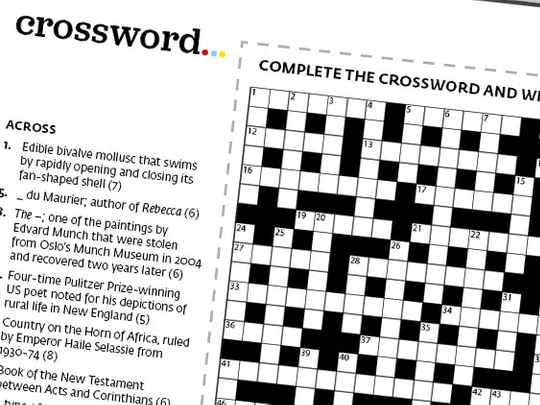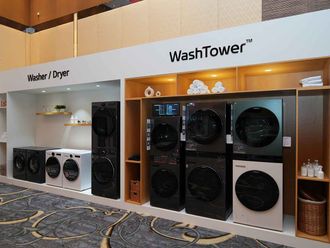
The thing about crossword puzzles is not that most human beings don't get them, but that the computer doesn't. Computers have beaten our best brains in chess, our best in general knowledge games like Jeopardy and are known to be able to calculate the value of pi to a degree most human beings haven't heard of. But give a computer so many downs and acrosses in a crossword grid and, voila! It will not know which way to look.
Recently, the American Crossword Tournament in Brooklyn had 600 human contestants and one computer (which wasn't eligible for the $5,000 first prize, but this is not the place for anti-discriminatory diatribes). The computer is named Dr Fill. And that's just the kind of wordplay computers fail to understand.
Fill is about, well, filling in a crossword (OK, so not all human ideas are brilliant ones) and Dr Phil is the name of the television personality Dr Phil McGraw. This is the kind of thing that stumps computers, which have the sense of humour the old Stalinist regime in Soviet Russia was known for. Like animals, computers don't laugh; worse, they fail to see the joke.
When things go too far and we have to reclaim our territory in a world ruled by computers, you can easily cause havoc in their ranks by telling them a joke about two men named Pat and Mike who walked into a bar (of soap, of course).
And that is where we subtler, pattern-recognising humans score. Tell us about the value of pi, and we think it's a printing error. But computers know all about numbers and would merely shrug their shoulders if you gave them Sudoku puzzles in three dimensions. On the other hand, when we see ‘strange decorations' as a clue in a crossword puzzle, we barely pause to take breath before filling in ‘coordinates'. Computers would waste all their time thinking of festival lights or streamers or funny hats.
Still, Dr Fill came in 141st in the tournament, which means that it was better than 459 human beings who took part, and considering that these 459 are crossword enthusiasts, that may not be such good news for those who think on their feet, or indeed walk on them.
The ability to compose music or watch endless re-runs of Seinfeld might distinguish man from beast; the difference between man and machine is the ability to solve crossword puzzles.
That may be good or bad, but to me it is an unhappy dictator offering no obstruction. Work that out.












